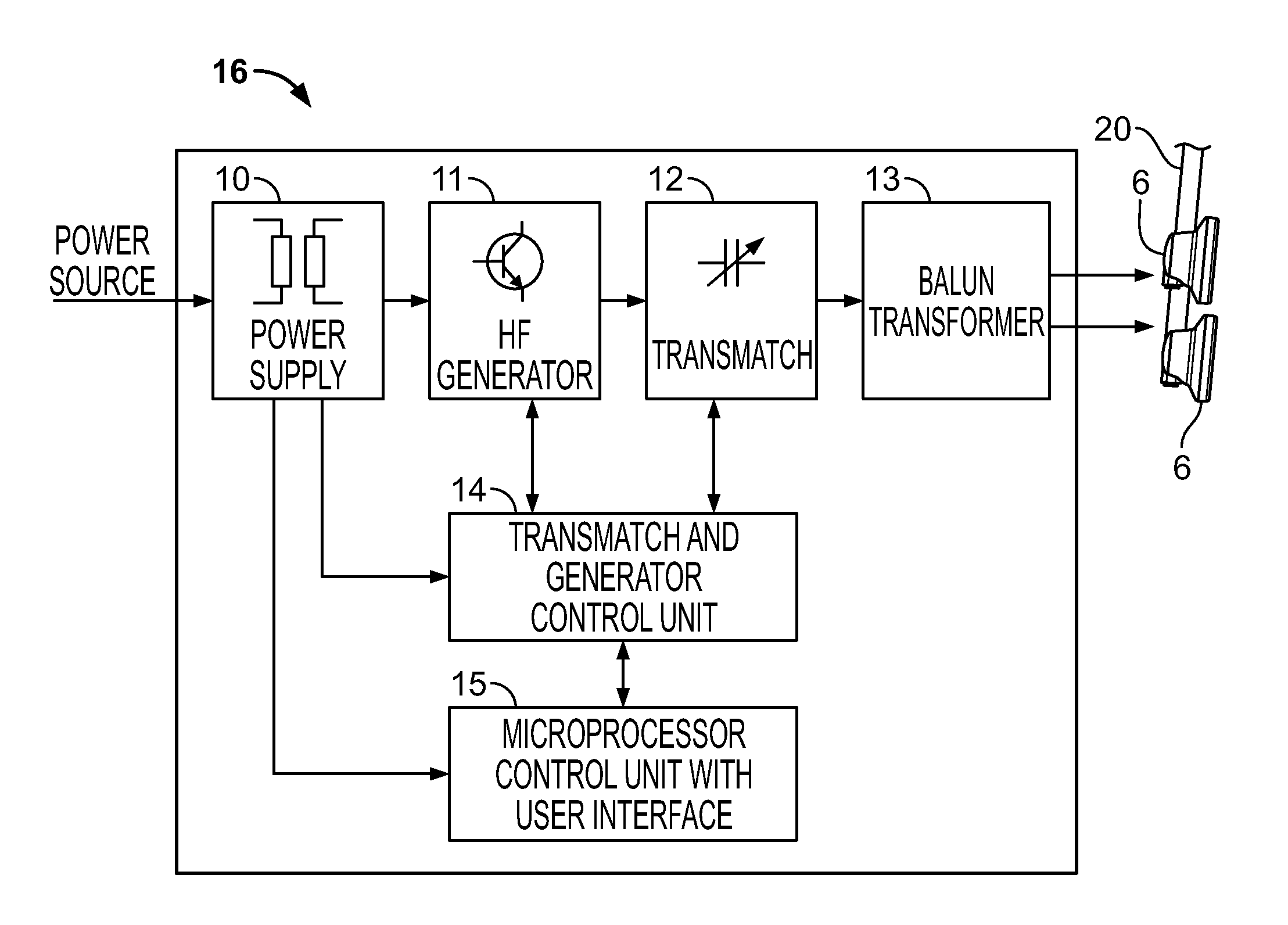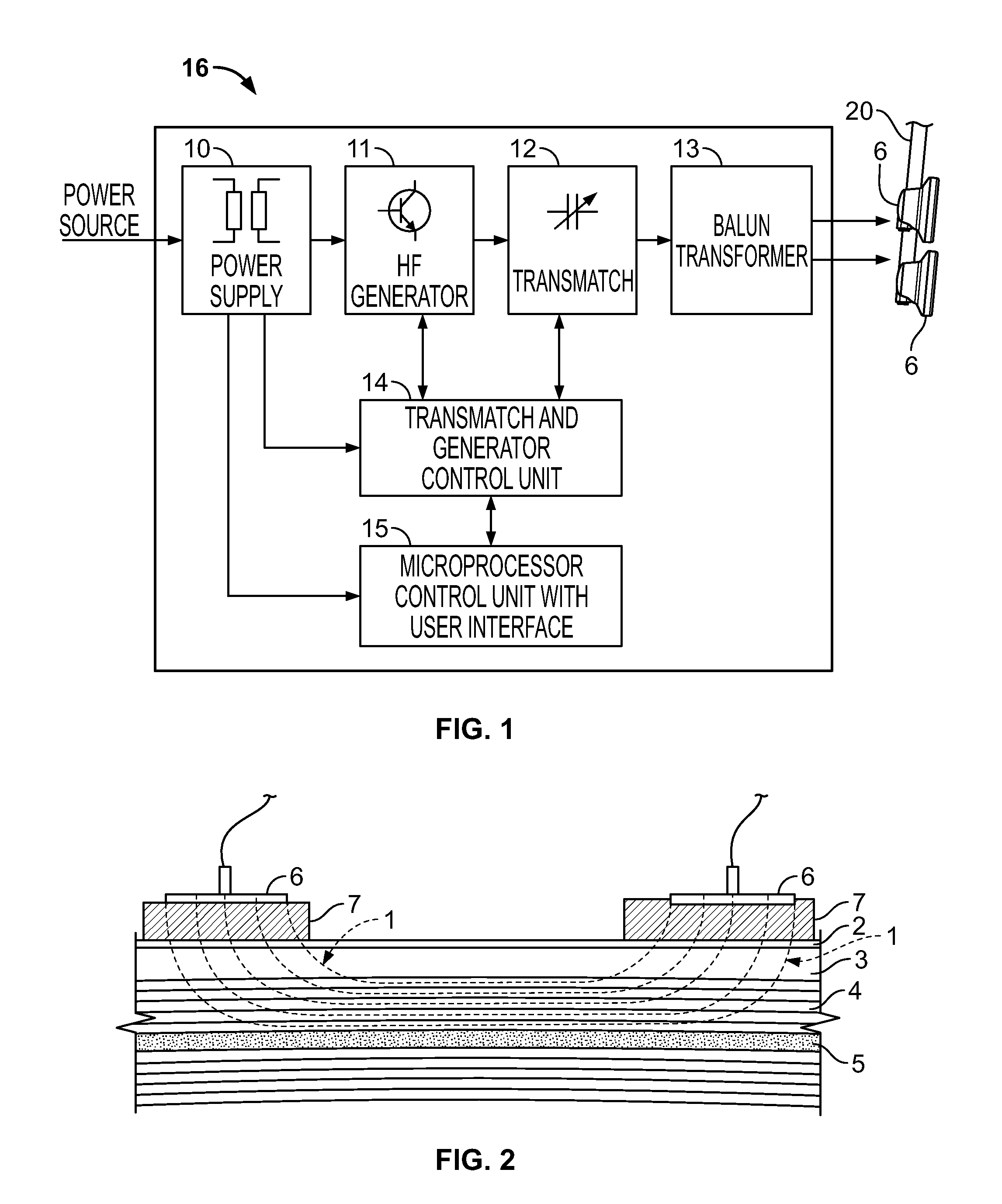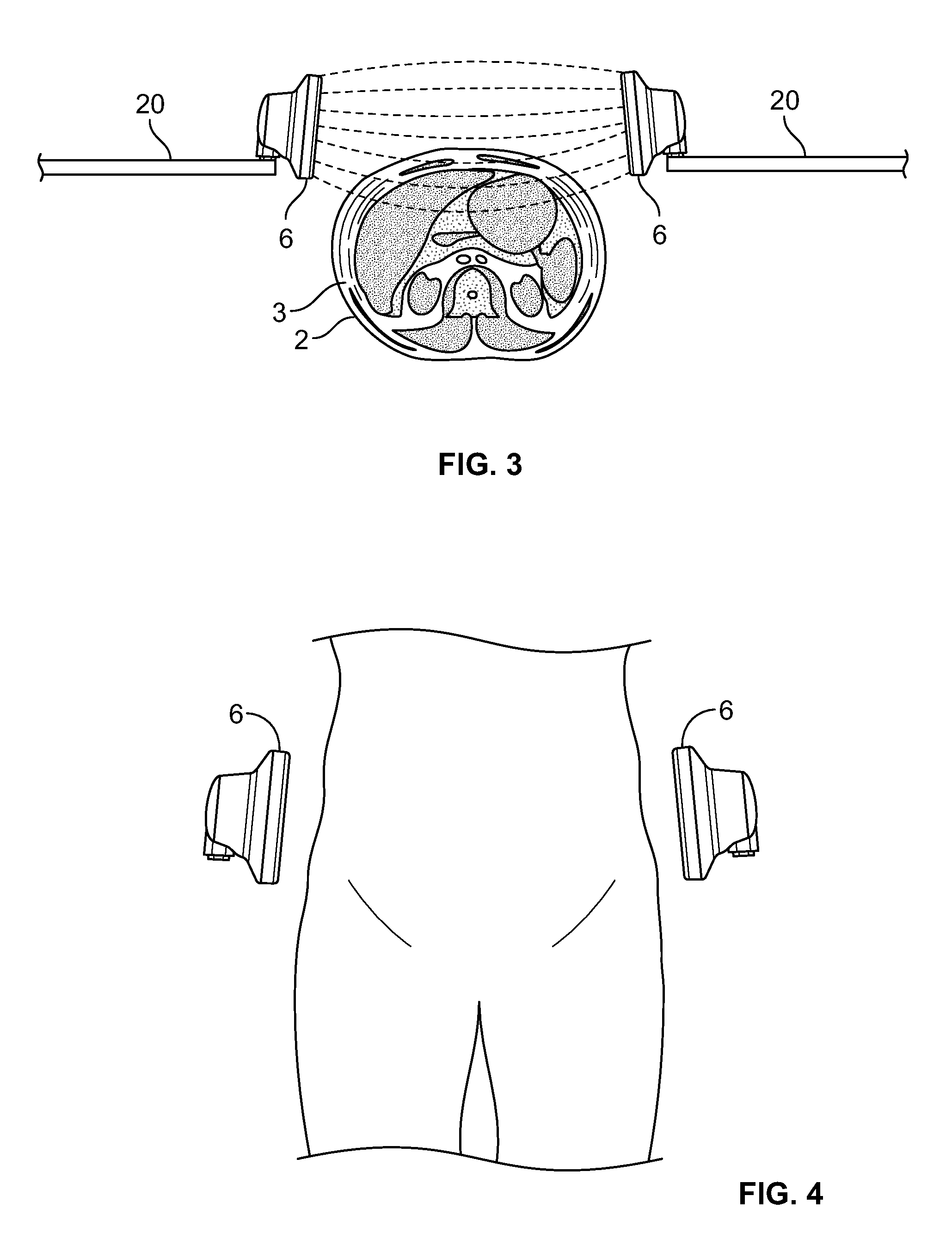Methods and systems for subcutaneous treatments
a subcutaneous treatment and system technology, applied in the field of methods and systems for subcutaneous treatment, can solve the problems of unpredictability in the reduction of adipose tissue volume from all anatomical areas, increase in fat cell size or fat cell number or both, and increase in fat cell size or fat cell number, etc., to achieve the effect of reducing the volume of lipid-rich cells in the subcutaneous tissu
- Summary
- Abstract
- Description
- Claims
- Application Information
AI Technical Summary
Benefits of technology
Problems solved by technology
Method used
Image
Examples
Embodiment Construction
[0012]Methods and apparatus for focused remodeling and downsizing the volume of subcutaneous lipid-rich cells, body contouring and tightening skin tissue, without contact with the skin, have now been invented. Prior art methods generally require direct contact of an applicator onto the skin. This in turn typically also requires use of active skin cooling elements. Direct skin contact can also raise bio-compatibility issues with the applicator material and further requires high sanitary standards, since the applicators are used for treatment of different patients. With the prior art methods, the practitioner must also continuously move the applicator, to reduce the risk of burning the patient.
[0013]These disadvantages are overcome by transmitting electromagnetic energy into the sub subcutaneous tissue, without physical contact with the patient, and without a need for continuous movement of the applicator. The step and repeat movements of the applicator over a grid pattern on the pati...
PUM
 Login to View More
Login to View More Abstract
Description
Claims
Application Information
 Login to View More
Login to View More - R&D
- Intellectual Property
- Life Sciences
- Materials
- Tech Scout
- Unparalleled Data Quality
- Higher Quality Content
- 60% Fewer Hallucinations
Browse by: Latest US Patents, China's latest patents, Technical Efficacy Thesaurus, Application Domain, Technology Topic, Popular Technical Reports.
© 2025 PatSnap. All rights reserved.Legal|Privacy policy|Modern Slavery Act Transparency Statement|Sitemap|About US| Contact US: help@patsnap.com



